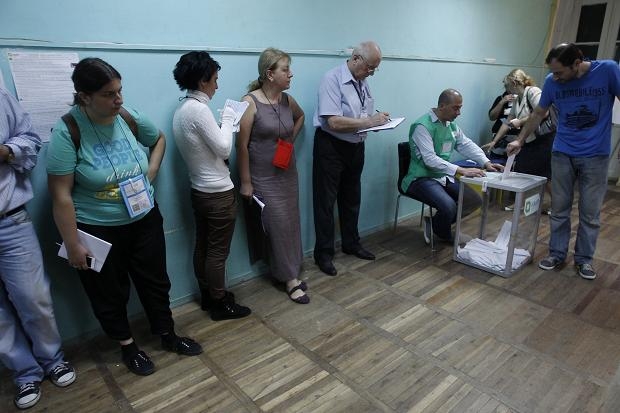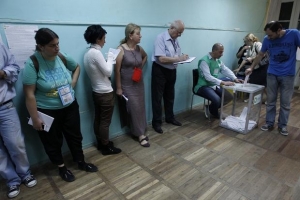Electoral Code Reform Likely to be Delayed until 2020
Even though the next parliamentary elections in Georgia are more than a year away, the election themes are already apparent. For these elections, as was the case previously, the political opposition demands the removal of majoritarian MPs from the electoral code, something which the current government is unwilling to entertain. Indeed, the Parliament Speaker has confirmed that the election code will not be changed until 2020.
According to the Constitution, the country’s supreme legislative body is composed of 77 MPs elected through proportional party lists and 73 majoritarian MPs. The opposition, including the United National Movement, is asking to change this norm and ensure full composition of parliament with proportional lists. The opposition has already started to collect signatures for a petition so that MPs start discussing constitutional changes. According to Mamuka Katsitadze, leader of the political organization New Rights, the non-parliamentary opposition needs signatures of only a few more MPs in order to initiate the procedure of changing the electoral code. “In total, we need 76 signatures and we need 17 more signatures in order to register this change. Out of the 59 signatures that we have, none of them are from the Georgian Dream Coalition representatives. Therefore, it will be a big challenge to collect all necessary signatures,” Katsitadze told reporters after the closed inter-party group meeting at the Courtyard Marriott Hotel.
Prior to that, the first collegium of the Georgian Constitutional Court decided on the case “Georgian citizens Ucha Nanuashvili and Mikheil Sharashidze against the Georgian Parliament”. The Constitutional Court satisfied the appeal and found the norms of the Georgian electoral code that set 73 one-mandate majoritarian electoral district norms unconstitutional. In particular, according to the controversial norms, each municipality, apart from Tbilisi, was a single-mandate majoritarian district for parliamentary elections and in Tbilisi 10 majoritarian election districts were formed. The Constitutional Court indicated that while setting the borders of majoritarian electoral districts, the number of registered voters in municipalities should be taken into consideration and the state’s efforts should be directed at ensuring the formation of equal electoral districts. To put it simpler, the Constitutional Court told the Parliament that it would not consider what it deemed the demands of a small proportion of the electorate.
Despite the peculiarity of this electoral mathematics, the main characteristic of the majoritarian system is that majoritarians are not usually subjected to party discipline and start their own political games in the supreme legislative body, avoiding the “mother” party. The problems this can cause were made clear in the 2012 parliamentary elections. After losing the election, 9 majoritarian MPs left the United National Movement and joined the winning ruling party in the parliament.
Elsewhere, the 2012 elections showed us that majoritarians in essence act against the development of democratic institutions. For example, the ‘majoritarian corps’ of the Georgian Dream are composed of Bidzina Ivanishvili’s friends, well-known sportsmen, singers and actors. As time has shown, these people actually slowed the political process.
The entire competition and ‘race’ of sportsmen, theatre people, composers and singers brought no good to the ongoing political process and generally, Georgian democracy. On the contrary, it brought them to the verge of political oblivion. Professionals should be in charge of politics. If we look at parliaments of democratic countries (the US Congress, House of Commons of UK, National Assembly of France, Bundestag of Germany, etc.), you will seldom find such characters. One notable exception was the election of the porn star Cicciolina in the Italian Parliament. The US Republicans or French Gaullists would find it ridiculous to name Tom Cruise, Steven Spielberg, Gerard Depardieu, Anthony Hopkins or Oliver Kahn as MP candidates. Only in developing African or post-Soviet countries is this accepted. Thus, no matter how many supporters or opponents the majoritarian system finds, it is important that political processes do not divert further into the realms of celebrity.
Zaza Jgharkava












